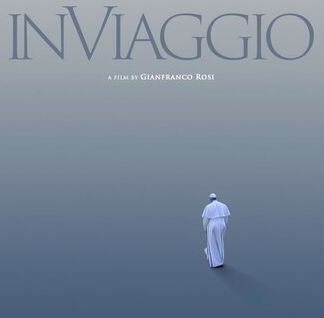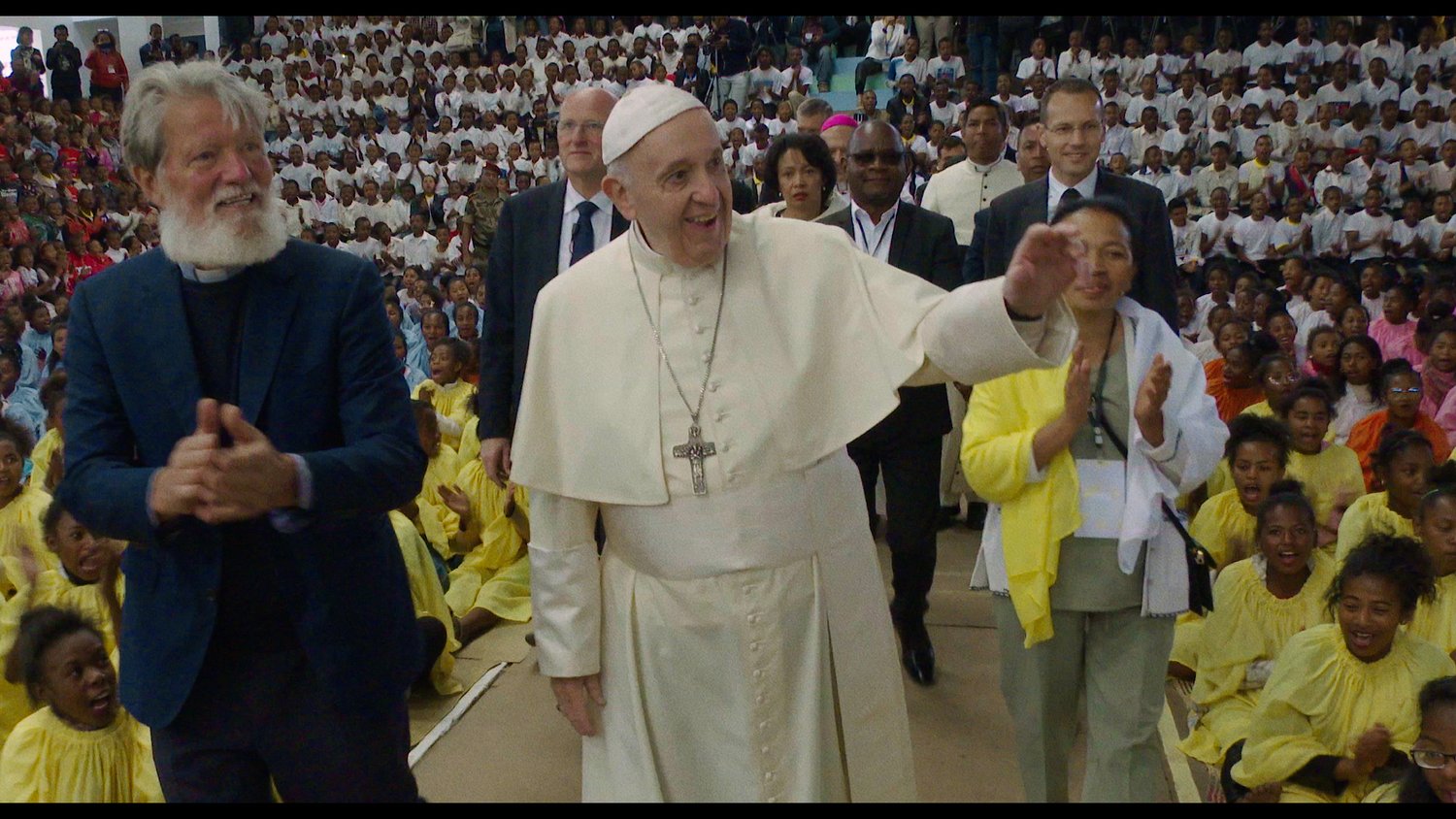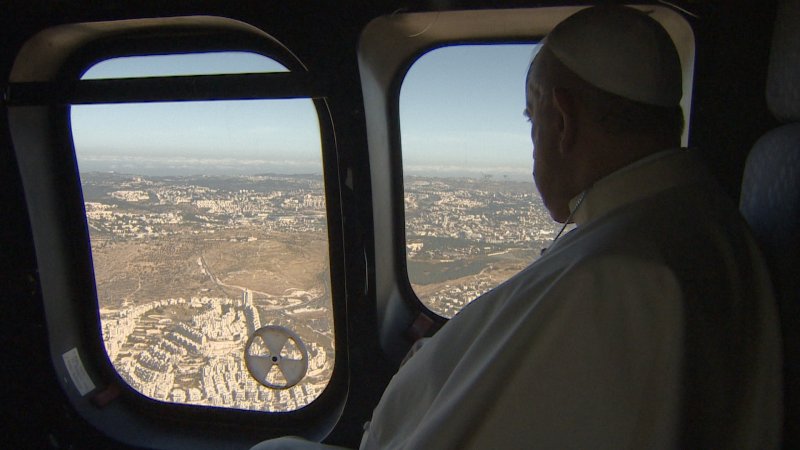
Pope Francis, during his first nine months of pontificate, made 37 trips across 53 countries. Throughout his travels he discussed the issues of our time: poverty, dignity, nature, migrations, solidarity and the condemnation of all wars.
Italian director Gianfranco Rosi, known for documentaries such as Sacro GRA (2013) and Oscar-nominated Fire at Sea (2016), has established himself for shining a light on those living on the edge of society. His latest film, In Viaggio The Travels Of Pope Francis — that had its world premiere at the 79th Venice International Film Festival where it screened out of competition — is not as lucid in applying social criticism to its protagonist. In fact, this documentary about the Pontiff sends proselytism vibes.
On the one hand the technical aspect of the film is laudable: the phantasmagorical work in rearranging the footage of a decade-long chronicle of voyages is remarkable. On the other hand the way in which the Head of the Catholic Church is presented is exceedingly acclamatory.
Gianfranco Rosi, who has accustomed us viewers to an unfiltered depiction of society, brings to the silver screen a portrayal of Pope Francis that is utterly immaculate. The entire construction of the documentary’s storytelling seems a cinematic attempt of catechism.

The institution that Pope Francis represents has been surrounded by several scandals, the most notorious being the numerous sexual abuses that the clergy carried out on minors. These crimes are condemned by the speeches made by Jorge Mario Bergoglio, and yet (something that the documentary doesn’t show) for years he defended Gustavo Zanchetta accused of sexual predation since 2015, who was ultimately sentenced to four years and a half in prison. This inevitably puts in question the Pope’s credibility, since he not only rejected the initial accusations against the former bishop of Oran, but he created a job for him at the Vatican that got Zanchetta out of Argentina.
In Rosi’s film, the Pontifex criticises the spread of hypocrisy in the Church and condemns the globalisation of indifference amongst mankind. His atonement throughout his travels is always on behalf of those who preceded him, like the apology delivered for the abuse suffered by indigenous children in the so-called Residential Schools, run by the Catholic Church in Canada between the 1870s and 1990s.
The documentary further presents this spiritual leader as one who encourages people to dream and protect dignity. While visiting the United Arab Emirates the Pope condemns proselytism against the orthodox, evoking the time when Christians would try to wrest the Holy Land from the Muslims. He speaks against armed power in places like Iraq and says that “Hostility, extremism, and violence are traitors to religion.” And yet Rosi’s film forgot to include how the Pope slapped a Chinese woman’s hand to free himself at the 2020 New Year’s Eve gathering. He later apologised for setting a bad example; meanwhile the web had trolled the episode ironising on the fact that Covid-19 could be interpreted as a divine punishment through a virus that started in the very country that was offended.

The way the film director amalgamates the legendary footage of the deafening silence of an empty Saint Peter’s Square during Easter of 2020, reprises the solemnity of the way Pope Francis led the traditional Via Crucis in this uncanny circumstance. But besides the enthralling visual aesthetics of In Viaggio The Travels Of Pope Francis, the film is void of Rosi’s unabashed commentary that characterises the hallmark of his filmic poetry.
Nevertheless, what undoubtably deserves praise is the filmmaker’s exceptional mastery of the medium: the assemblage of the gargantuan amount of material he dextrously edited is noteworthy. Rosi includes black and white heart-wrenching images of the atomic bombings of Hiroshima and Nagasaki, as well as the breathtaking depictions of our planet seen from outer space. The latter introduce Pope Francis’ conversation with the astronauts, from different countries, who work at the International Space Station. This moment is the most transcendental of all, as it is drenched in lay thought and is set in the place where the big bang originated. The cosmonauts explain to the Sovereign Pontiff how life acquires a deeper meaning in an environment where there are no borders or conflicts. There, where the atmosphere is thinner, one can perceive the frailty of existence. This philosophical consideration made by the space travellers generates the holy man’s response: “the totality is greater than the sum of its parts,” which was something that Aristotle said, that eventually laid the foundations of the Gestalt theory. This creates an instant, in the densely evangelic documentary, were an holistic message is brought forth to underline the interconnectedness of all beings.
Final Grade: C+

